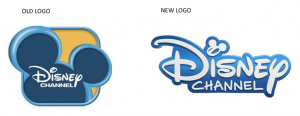 This week, Foursquare unveiled a new logo and teased mobile audiences with a new, more focused Foursquare app. This change has been on the table for months, so the announcement does not come as a surprise.
This week, Foursquare unveiled a new logo and teased mobile audiences with a new, more focused Foursquare app. This change has been on the table for months, so the announcement does not come as a surprise.
Just last month, Foursquare launched its new Swarm app, which users were told would take over all “check-in” features previously offered through Foursquare. As a result, Foursquare would eventually kill the check-in process in its flagship app and turn that app into a hyper-personalized, local search tool.
In a blog post unveiling the new Foursquare logo and mobile icon that will be used for the new local search app, CEO David Crowley explained that the new logo is a combination of a map pin and a superhero emblem. It is meant to represent the new Foursquare. He wrote, “We’ve always thought of Foursquare as giving you superpowers to explore your city, and our new logo reflects that vision.”
Crowley promises that the new Foursquare will provide a unique user experience for everyone because no two people like exactly the same things. Users will enter some information, and as they use the app, it will learn their preferences. In the future, when a user is at a specific location and searches for nearby restaurants, it will know that the user prefers Mexican food and will deliver those results first. Rather than scrolling through a long list of restaurants that a person doesn’t like, that person will be able to quickly find restaurants that are likely to appeal to him or her. Imagine the targeted advertising opportunities!
The rebranding initiative is a good one. There is no doubt that Foursquare needs to start fresh, and with the introduction of the new Foursquare app, a new brand identity makes sense. I am surprised that the company chose to keep the Foursquare brand with the new app and created a new brand name, Swarm, for the app that took over the check-in utility. Yes, there is value in the Foursquare brand, but not all of that value it positive. How hard will it be for Fourquare to break free of its brand history and convince consumers to believe its new brand promise?
If the app is really good, the challenge will be far less onerous than it will be if the app doesn’t meet consumer expectations.
What do you think?
Susan Gunelius is the author of 10 marketing, social media, branding, copywriting, and technology books, and she is President & CEO of KeySplash Creative, Inc., a marketing communications company. She also owns Women on Business, an award-wining blog for business women. She is a featured columnist for Entrepreneur.com and Forbes.com, and her marketing-related articles have appeared on websites such as MSNBC.com, BusinessWeek.com, TodayShow.com, and more.
She has over 20 years of experience in the marketing field having spent the first decade of her career directing marketing programs for some of the largest companies in the world, including divisions of AT&T and HSBC. Today, her clients include large and small companies around the world and household brands like Citigroup, Cox Communications, Intuit, and more. Susan is frequently interviewed about marketing and branding by television, radio, print, and online media organizations, and she speaks about these topics at events around the world. You can connect with her on Twitter, Facebook, LinkedIn, or Google+.


